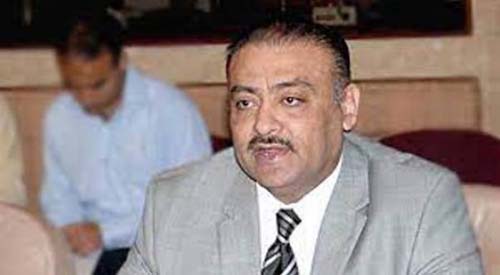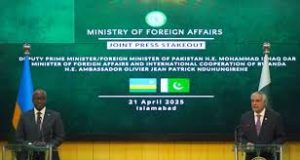Law enforcement agencies to continue offering maximum security to polio teams: Qadir Patel

Bannu: Federal Minister for National Health Services, Qadir Patel on Thursday assured that the law enforcement agencies will continue to offer maximum security to polio teams and ensure access in all hard-to-reach areas.
“I came to Bannu today to meet the families of children affected by polio and have instructed relevant authorities to offer rehabilitation services to both children,” the minister said during his visit to South Khyber Pakhtunkhwa.
He urged all stakeholders, especially local communities, caregivers and families to join fight against polio, taking responsibility for their children’s health and ensuring they are vaccinated in every campaign.
He said that the next few months are crucial to Pakistan’s polio eradication efforts. The country has a historic opportunity to end polio and cannot afford to reverse the progress made over the years, he added.
He said that it is truly very heartbreaking to see a two-year-old girl and fifteen-month boy paralyzed for life by a preventable virus that has been eliminated in most parts of the world. This is a tragedy for all of Pakistan, he added.
“Among the major challenges in this area is a lack of female workforce. We need more women to step out of their homes and vaccinate children.”
Patel said, “Mothers are the best caregivers and we need them more than ever to reach out to families, spread awareness and protect our children from their paralyzing disease.”
He said that the government will have zero tolerance for anyone found to be misrepresenting data or involved in fake marking. This is a crime against the children of Pakistan, he added.
He said that North Waziristan and adjoining areas are of highest priority to the government. “We are closely monitoring the polio situation here and working with the Emergency and Operation Centres to interrupt transmission in the area.”
Patel said, “We are aware that there are unaddressed health needs of the area and are working to ensure better overall health care, routine immunization, and improved water and sanitation services.”





